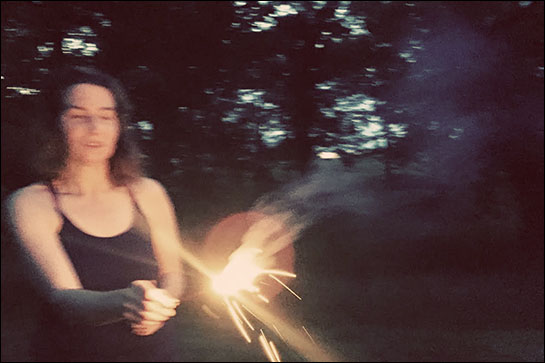
In case you don’t know, I was at the World Trade Center when it fell. Here is the piece I wrote for Time magazine on that day.
Here is an archive of the posts I’ve written every year on 9/11.
Here are my two biggest problems today: Read more

In case you don’t know, I was at the World Trade Center when it fell. Here is the piece I wrote for Time magazine on that day.
Here is an archive of the posts I’ve written every year on 9/11.
Here are my two biggest problems today: Read more
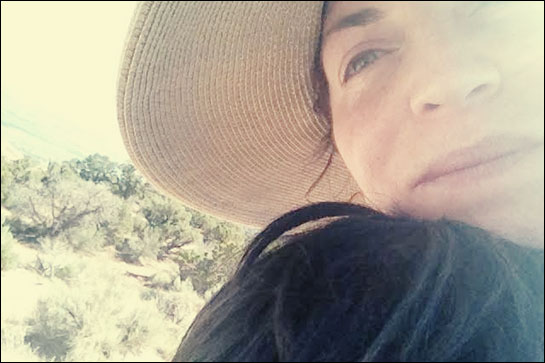
Every year I write about 9/11. Because I was there. But this year, I didn’t want to. But then I woke up today and decided that I want to. Read more
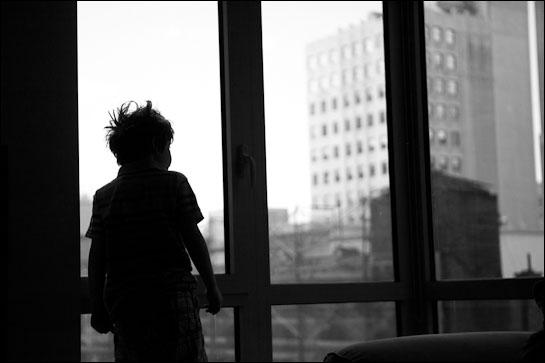
I was there, at the base of the first tower when it fell. That night I wrote a piece for Time magazine to make sense of what happened. And each year on 9/11 I write again. This year I was thinking that I’ve been back to New York City so often with my kids that maybe my 9/11 phase of life has passed…
But then I decided to tell you a story. Read more
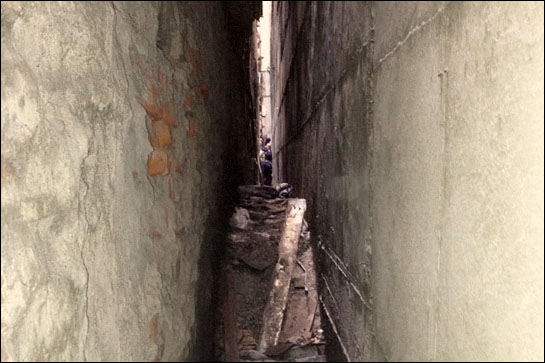
People are still finding debris from the World Trade Center attacks. Tucked into crevices, between building where you don’t expect it. This is what I feel like is happening in my body as well when someone brings up a topic that makes me think of my day at the World Trade Center all over again.
Recently, it was the discussion of how it’s a messed up life to work on your phone all day. Why are so many people saying they need to be an unplugged as parent? I think those people are desperate and misguided; being tethered to my phone gives me freedom to make decisions completely consistent with my values.
A way I test this hypothesis is go back to the moment on 9/11 when I was at the World Trade Center when it fell. I remember every minute of what happened from when the World Trade Center started to fall to when somebody found me. So I say to myself, During that time when I thought I was going to die, would I have been grateful for the times I was tethered to my phone? The answer is yes. Here’s why: Read more
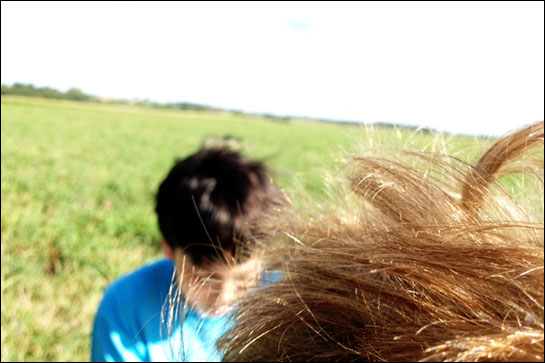
I was at the World Trade Center when it fell. Every year I say to myself that this will be the last post I write about 9/11. And then every year I write another post. So, now I have a whole archive of posts about my story: I was so close to death, from suffocation, that I went through the acceptance process. Then I lived. Now I write about it.
For a while I thought the most remarkable part of my story is not that I lived, but that I walked toward the building. I had time to get away, but I wanted to see people jumping. I couldn’t believe it. So I stood, right there at the bottom, looking up to see what was going on. I talked to people next to me. I did many things that I could have regretted. Read more
During the year after 9/11 I went to counseling for post-traumatic stress. I went to a group that met weekly. The counselors explained that if we told our story over and over again, the story would have less power over us.
So I have been telling my story for ten years. I am lucky to have a blog, and an amazing community to tell my story to. And recently, as the 10th anniversary has been approaching, I've been telling my story again, to many news outlets.
I was there when the first tower fell. I was so close to it that I could not even see what had happened. I didn't run. I ducked for cover. I got trampled. By the time I could stand up, everything was completely dark.
I remember the moment I realized I should close my mouth and stop breathing. Time got so slow. I remember thinking that if I had stopped breathing sooner, I would have had a few extra breaths right now. I remember thinking don’t swallow, because there was too much stuff in my mouth.
I thought to myself that I had no idea what to do to save my life. I was in the dark and couldn't breathe. I thought I'll only be alive for maybe a minute longer, so I only have to keep trying to figure out how to save my life for one more minute. I told myself I can't give up until I pass out. I remember that I hoped for a fast death. Read more
It's 9/11 again. And for the last seven years, I've written on this day about how I have grown since the World Trade Center. I was standing next to the first tower when it fell.
Mostly, I don't think about 9/11 anymore. Well, not on a daily basis at least. But, for example, I so seldom hear a plane flying over my town—Middleton, WI—that when I do, I have flashbacks to hearing the second plane fly right over me and into the building.
I also have flashbacks when I go running with the farmer on his dirt road. On a dry day the dust gets in my mouth and it feels like the moments leading up to when the air was so thick with debris from the fallen building that I couldn't breath. We stopped running on the dirt for the summer.
In an odd way, though, 9/11 has helped me. It helped me focus my career, and understand my personal history, and it helped me have compassion for my husband when our marriage was ending.
Over the years, what that upsets me the most about 9/11 has changed. In the beginning, I was most upset about how when I saw danger, I walked toward the building, to see what was happening, rather than getting back on the train and going home. Later I learned that most of Wall St. responded the same way, so I was beating myself up for what was simple human nature. Read more
The slowest moment in my whole life was the time between when the World Trade Center fell next to me, and when someone broke a window and I climbed in to get air. In my memory this time span is about fifteen minutes. But from the historical record, I know it was about one minute.
I have been writing for seven years about how the World Trade Center changed me.
And I have been writing, too, about how much I want to change. Sometimes it’s about productivity, sometimes it’s about compassion, sometimes it’s managing my own money. I always want to change something.
I always thought that my success is due to my fast pace. My quick thinking, quick delivery, quick judgment, quick shift. I tell myself that I can get what I want if I try hard enough. And then I translate that to a faster pace.
Don’t tell me about meditation, and yoga, and being present. I’ve done all that. The problem is that a fast-paced overachiever can undermine even those being-present techniques. For example, I am sure that I’m better at Ashtanga yoga than you are: See. That’s how the mind of the fast-paced works.
There is the step you take where you change what your body is doing, and then there is the second step, where you change what you believe. So I have had a hard time believing that I’d be okay with a slower pace.
But this year, I tried going slower. I tried to trust that I’d change the most by changing my pace.
Changing my pace has been about trusting that good things will come from being slow, just as they do from being fast. It’s hard to trust in that, because if you’ve been fast your whole life, you don’t know what you’ll get from slow. Instead, you only see what you cut out of the fast life to make room for the slow life. You know what you lose but not what you’ll gain.
Some of you know what I mean. Others of you are sitting in your chair, smugly thinking that you are great at slow. But those of you who hate a fast pace, you still have a pace problem, it’s just the opposite: Speed makes you anxious. You might miss something. You might do something wrong. You might get lost. These are the worries of slow people that are foreign to the fast.
Pace matters. It opens doors if you use it well. I am not sure if I would be able to change my pace if I had not had an inescapable, defining moment that forced me to try slow. So today I am taking a moment to have gratitude to all the lessons I learned, during my slowest moment..
Two Months After 9/11: Trying to Make Work Normal Again
Wall Street After 9/11: The Support Group Starts at 5pm Sharp
Lessons Learned from New Orleans
I was standing at the bottom of the Word Trade Center when it fell. I was standing so close that I didn’t know it fell. I thought earthquake, until I couldn’t breathe. Then I thought nuclear bomb.
Now, when I let my head go back to that day, there are two moments I most easily go back to:
Moment 1: At one point I was with five men in dress shirts and ties totally covered with debris. We had each climbed into a bank next to the World Trade Center site. Debris coated our throats and we had all just fought over who got to drink water out of the toilet. When it turned out there was enough water, we went together to a hallway and sat on the floor. I started crying. The guys looked at me like I was going to be trouble and moved away. But one guy put his arm around me.
Moment 2: Minutes later. The men and I split up outside and lost each other quickly. None of us had any idea where we were. There was no one walking. I was all alone. I was still so disoriented that I didn’t know the building fell, even though I was walking at the site. Then some woman, wearing completely clean clothing, took my hand and told me to walk with her. She shepherded me nearly ten miles on foot, patiently waiting through my many screaming panic attacks, to her apartment on the Upper West Side.
Those are the two scenes I usually think about when I think about 9/11. But sometimes, if I am feeling like it might be an okay time to cry, I’ll let myself go to other stuff. Like, the part right before I heard someone break a window in that bank. The part when I thought I would die. I remember realizing my mouth was open but I was not taking in air. So I shut my mouth. I remember thinking I wish I had shut my mouth sooner so maybe I could have held air in my body a few seconds longer.
Then I accepted death. That does really happen. You quickly run through everything that matters. It is so fast how you do that. Because I know you know this: Not much matters. I had no kids. I thought of my brothers and my husband. I felt sad. Then I felt fine. And I waited to die. I could not find anything else to do. I could not see or breathe.
Then I did not die. Then I climbed in that bank window.
People wonder what the hell I’m still doing with my husband when things are so bad between us right now. But I have been one minute from death, and all I wanted in that moment was to see what life would be like with him. That’s what I wanted. I felt enormous disappointment that I would never know.
I just wanted to see things with us unfold. So I’m not giving that up. Not now.
And here’s what happened when I got to that Upper West Side apartment. My husband walked ten miles to pick me up. I told him I was fine and he took me straight to the hospital. He told me, later, that even though the woman put me in the shower, even though I did not say what happened, he could still see debris stuck deep in my ear and he knew that things had been bad.
Doctors bandaged my eyes shut. My husband held my arm for three days, showing me where to go. For a week, he stayed by my side every moment. I didn’t shower. I barely slept. My ability to stay in reality was limited. And he was there the whole time.
And then, months later, I went to trauma recovery group. A lot. And then I started reframing the story. I stopped blaming myself for walking toward the World Trade Center when I heard there was danger. I stopped thinking of the trauma as derailing my life and started thinking of it as a new path. And then, I started working. A little at first. But soon, at full-throttle.
So, look, it’s true that I know what it’s like to be on one’s death bed. That saying that you never say, “I wish I worked harder.” It’s absurd. You don’t have any thoughts like that at all. You just have your family in your heart. You see there is not a lot of room for stuff there. Your family takes up everything in those last seconds.
And then, you go back to work and it’s totally stupid. Right? What is more important than being with your family? That’s what you say to yourself.
But here’s what I am giving up. The idea that every second could be my last second. Because then you are not living life. Yes, it’s true, work is not as meaningful as family. And yes, it’s true, I did not think about my to-do list when I faced death. But if you’re not dead, your to-do list matters. Because that’s what life is. Life is getting up and going to work on things that are high on your list. Work in your pajamas, maybe, or in a corn field, or in the car to drive the kids to school. It’s all work. It’s what we’re doing here. And it’s a treat.
So what has changed? I appreciate kindness more. The kindness of an arm around my shoulder, the kindness of a warm shower from a stranger. The kindness of my husband. And I appreciate the daily routine of life. Waking up. Tending the to-do list. And not treating every moment like it’s my last. Because it’s not. This is my life, unfolding. It’s my dream come true. It’s not unfolding like I thought it would, but I’m getting to watch it. Thank god.
I was at the World Trade Center when it fell. At each anniversary that passes I write my story, and each year it changes a little. This year, I have been thinking about that moment when I accepted death.
I was at the corner of Liberty and Broadway when the first tower fell. I was too close to the building to be able to see what was happening. It sounded like a huge bomb, and it felt like a snowstorm of dirt. Everyone ran. But in just a few seconds, the world became dead silent and no one could see. I crawled over piles of people. My mouth was full of dust and I could barely breathe. I had no idea where I was or how to preserve myself. I thought I might be the only person alive. As breathing got more difficult, I settled into the idea of dying.
Time got very slow and I seem to have had an hour’s worth of thoughts in seconds. At first I worried that my family would be sad. But then I was disappointed. I would not see my brothers as adults. Would not know what I was like as a mom, or what it was like to grow old with my husband. My to-do list was overflowing with things I wanted to achieve, things I had been looking forward to. But the minute I thought I was going to die, that list didn’t matter. I was sad that I would not get to hang out and watch family life unfold.
It’s surprising because like almost all New Yorkers, I was not the hang out type. And in case it’s not clear from the obituaries and essays that have come from 9/11, the World Trade Center did not attract the slow-lane types.
Like many New Yorkers, I went to a World Trade Center recovery group. The groups were divided into the kind of trauma you experienced. People who watched the scene on TV were not in the same group as people whose spouse died. I was in a group with people who were there the ten minutes or so before the Tower fell. Some of the people in my group felt the impact of the plane while sitting at their desk. Some of the people ran from their building and were splattered by body parts from jumpers. All of us felt lucky to be alive.
All of us vowed to make life more meaningful after 9/11. Almost all of us changed jobs to do something that gave us more personal time. The few of us who could, had a baby.
Now I know that if I die tomorrow, what I’ll regret is not getting to watch my life unfold. So I have been changing my life, a little at a time, to give myself more time to watch life go by. I made a career change from Wall St.-based business development to home-based writer, I had two kids, and I encouraged my husband to reject jobs with long hours. We vowed to cut back our spending 70% to create a more simple life.
But cutting spending is not so easy, especially in New York City. It required making a lot of difficult choices. Finally we decided we could not reach our goals without moving. So this year, on the fifth anniversary of 9/11, I am making a new home in Madison.
Sure, I’m still competitive and ambitious when it comes to my career, but what 9/11 gave me the strength to make the scary decision to slow things down. Slowing down means missing opportunities, missing a chance to shine or a serendipitous meeting. It’s hard to simplify life because a complicated life is so stimulating. But nearly suffocating in the rubble showed me that what I want most is to be present: Consciously watching while my life unfolds.
penelope@penelopetrunk.com
